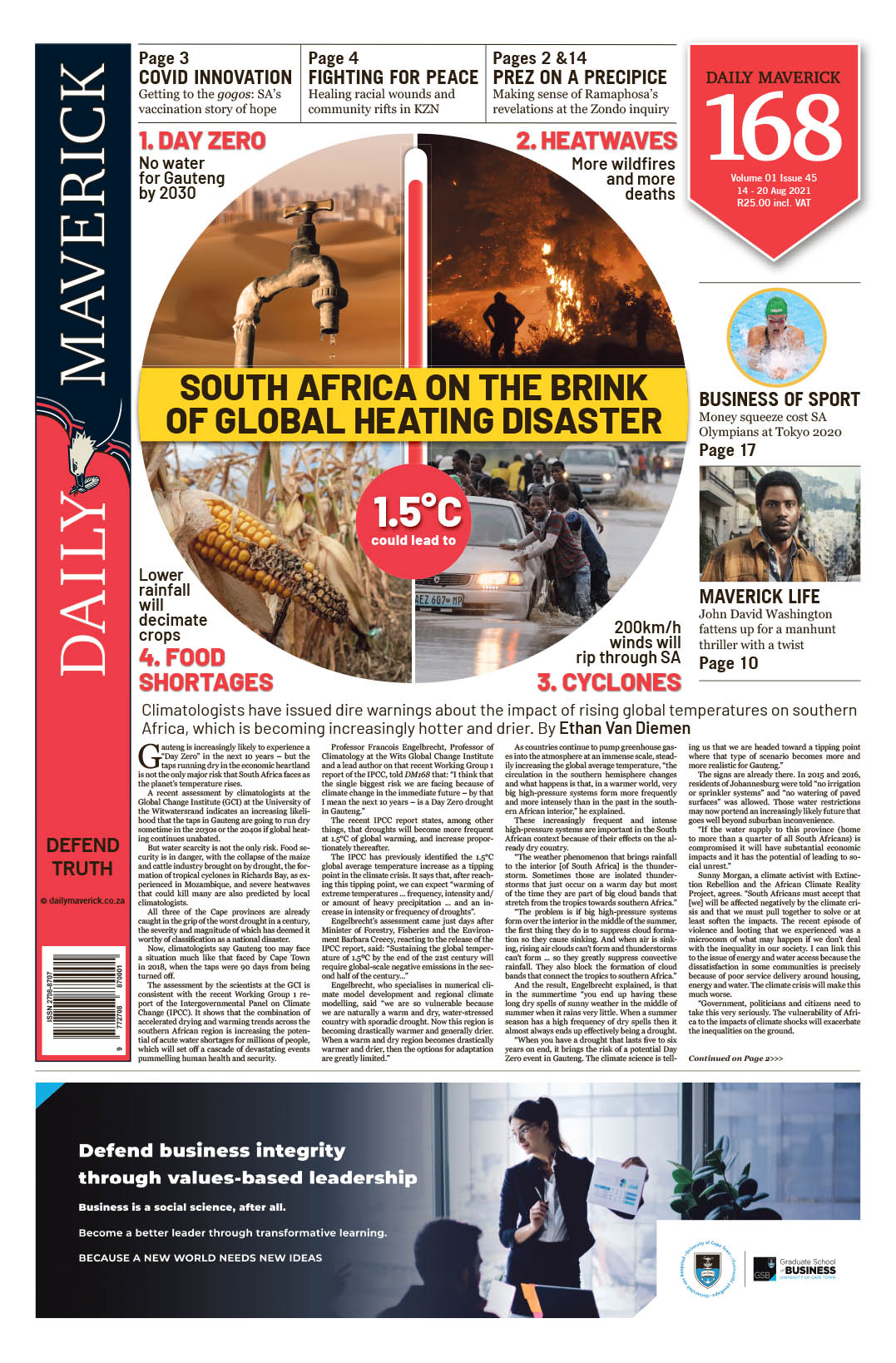First published in the Daily Maverick 168 weekly newspaper.
I knew from the age of 12 that I wanted to be a lawyer. So my singular focus from 12 until the age of 21 was to achieve this goal. Shortly after I began practising as a lawyer, it dawned on me that I was way too young to commit long term to such a demanding and serious career. It felt like I was playing with live dynamite even though at age 22 my brain had yet to develop fully.
I had gone from school to university to work, with no time in between to catch my breath. Only once I had worked for a few years did I realise that I had earned the right and the means to get off the corporate treadmill, if only briefly. I remember looking at my billable hours and realising that during my years as a candidate attorney I had barely taken any time off. Working ourselves to death would be virtuous. In fact, during our orientation we were shown a time sheet of the highest-fee earner who had billed unbelievable hours and who soon had to take a day off because they had had a breakdown.
After one particularly gruelling work period I developed a throat infection and could barely talk, but still I showed up for work. Even going to the bathroom during the working day felt like an inconvenience. I used to joke that I was going to start wearing a catheter, but I was kind of serious. All of this dedication was ultimately rewarded with a promotion to associate. It’s around that time that my body’s whisper of “slow down” turned into a roar.
The bodies of my colleagues were also issuing warnings. I had a colleague who suffered from bipolar disorder and who every so often experienced manic episodes at work. In the world of billable hours there is only so much support we could provide as his peers. His mental health deteriorated to the point where he had to leave the firm. Another colleague developed an ulcer at the age of 23 and another was diagnosed with chronic high blood pressure at the age of 28. We were being rewarded for our stamina even though the quality of our judgement was being compromised by gruelling working conditions.
The pressure of being the hopes and dreams of our communities meant that we soldiered on with conditions that were largely undiagnosed and unaccepted, at work and at home. Our parents’ generation worked under conditions of tyranny and repression, so by all accounts we were better off than them. Those previously out-of-reach careers were now open to us and we now had to prove that we were not lazy or incompetent.
We overdid it until we discovered it was all a big lie. We put in the hard work, only to still be living from hand to mouth. We discovered that our sense of self-worth and freedom would not come from our overinvestment in our careers. It was but one of the things we would need for a satisfying life. That’s when the privileged cohort of my generation started ruminating on purpose, self-care and the pursuit of balance. This room to explore was largely made possible by parents who did not need our financial support. Some of us have delayed marriage and children so that we can ditch the idea of traditional careers, or taken pay cuts, delayed promotions and pulled back from work to give us the capacity to explore other, softer interests.
The most luxurious thing I have ever done for myself was to walk away from my nascent career, to give myself six months of doing nothing before starting graduate studies. Walking away from my career came at a price. I knew that I would lose crucial years on the promotional track and I would miss my lawyer’s salary. But what I gained in return was immeasurable. I was able to redefine what a career is. Now it is not one job but multiple jobs that fulfil different interests and that make the best use of my talents. Now I do work that better reflects my values.
As the generation that started working at the onset of a global recession and now through a pandemic, before we could fully recover from the recession, we are disillusioned by the unpredictability of the returns our hard work will yield. We no longer glamorise or centre our lives on work. We have put in sufficient mileage in our careers to know that the definition of success is to have choice and not feeling beholden to one career, one boss, one industry or one company.
In a country with staggering youth unemployment, not everyone has what should be the human right to pursue meaningful work under humane conditions. But a certain class of talented millennials and Generation Zs have shown time and again that there are values that they hold in higher regard than money. Perhaps corporations will seriously start thinking about better aligning their values with ours, or they will only get the bare minimum from this generation of workers. DM168
This story first appeared in our weekly Daily Maverick 168 newspaper which is available for R25 at Pick n Pay, Exclusive Books and airport bookstores. For your nearest stockist, please click here.


















 Become an Insider
Become an Insider
Comments - Please login in order to comment.